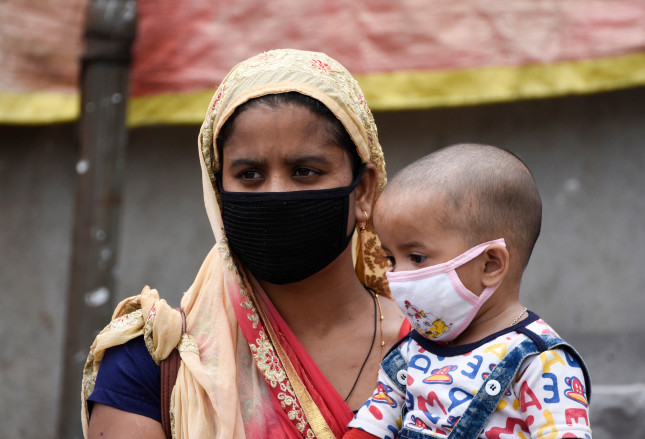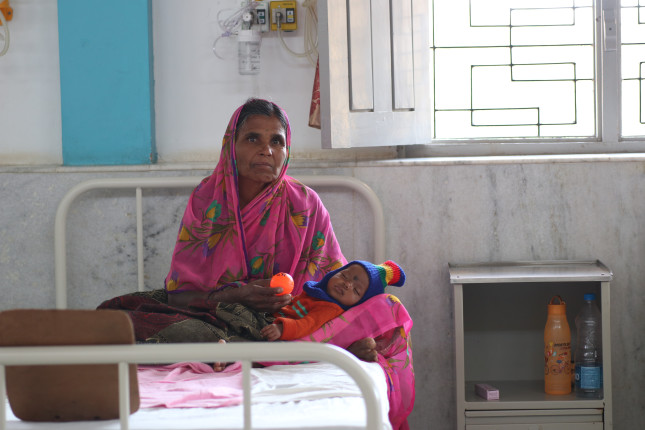-
Covid-19 // Dot-Mom // Reading Radar
COVID-19 Causes Dire Disruptions in Maternal, Child, and Reproductive Health Services
March 31, 2021 By Sara Matthews
“The pandemic has undoubtedly resulted in more deaths and more illness – particularly for the most vulnerable women and children,” write the authors of a new United Nations International Children’s Emergency Fund (UNICEF) report examining the direct and indirect effects of the COVID-19 pandemic in South Asia. The report found that the disruptions in several essential health services due to the COVID-19 pandemic had a “substantial impact” on maternal and child mortality in the region.
The authors conducted a simulation study focusing on the six most populous countries in South Asia: Afghanistan, Bangladesh, India, Nepal, Pakistan, and Sri Lanka. Using a random probability model, they estimated the impact of health service disruptions caused by COVID-19 on maternal and child health in each country. They also estimated morbidity and mortality directly associated with COVID-19 as well as indirect effects of the pandemic on educational attainment and the economy.
They found that disruptions caused by COVID-19 reduced coverage of maternal and child health services—including nutrition assistance, immunization programs, family planning services, and antenatal care—by more than 50 percent across the region in the second quarter of 2020. These disruptions may have contributed to an additional 239,000 maternal and child deaths. This equates to a 14 percent and 16 percent increase in child and maternal mortality, respectively, with India and Pakistan seeing the highest increases. In addition, disruptions in access to sexual and reproductive health (SRH) services, including modern contraception, likely contributed to an additional 3.5 million unintended pregnancies and a 50 percent increase in unsafe abortions.

Furthermore, the adverse effects of COVID-19 on maternal health and SRH are not limited to South Asia but are a global phenomenon, according to new data released by the United Nations Population Fund (UNFPA) and Avenir Health. Using a country-specific estimation approach, they calculated the impact of COVID-19 on contraceptive use in 115 low- and middle-income countries. They found that disruptions to family planning services were smaller and shorter than initially projected. Most were concentrated in April and May 2020 and lasting on average 3.6 months. However, despite their short duration, these disruptions in family planning services had a significant impact, affecting an estimated 12 million women and resulting in nearly 1.4 million unintended pregnancies. This data highlights a critical gap in current COVID-19 responses and underscores the need to incorporate SRH into future public health efforts. “The severe social and economic impacts of COVID-19 demand intensified action for women and girls,” write the authors.
There are early signs that the Biden Administration intends to answer this call to action. In January, President Biden released a memorandum affirming his commitment to protecting women’s health, including reproductive health, at home and abroad. The memorandum also rescinded the Mexico City Policy (also known as the Global Gag Rule) and announced President Biden’s intention to reinstate funding to UNFPA. While these are promising first steps, continued action is needed to ensure sexual and reproductive rights for all, especially in the context of the COVID-19 pandemic.
More than one year after the pandemic began, research is just beginning to reveal its impact on sexual, reproductive, and maternal health. However, one thing is clear: ensuring continuity of maternal and reproductive health services is an essential component of COVID-19 response and must be integrated into standard public health planning. “This pandemic may have been unprecedented,” write the UNICEF report authors, “but those in the future will not be, and the world needs to be prepared.”
Read more:
- COVID-19 is serving as a “great disruptor” of women and children’s health services
- The intersections between maternal mental health, gender-based violence, and COVID-19.
- The importance of including pregnant women in COVID-19 response efforts.
- How is COVID-19 affecting efforts to reduce child marriage?
- What does the advent of the Biden Administration mean for women and girls worldwide?
Sources: Avenir Health, BMC Reproductive Health, Guttmacher Institute, Reuters, United Nations International Children’s Emergency Fund (UNICEF), United Nations Population Fund (UNFPA), whitehouse.gov
Photo Credit: A woman with her child arrived at a bus stop to catch a bus. Talukdar David/Shutterstock.com, All Rights Reserved; Women holding a baby. Anna LoFi/Shutterstock.com, All Rights Reserved.
 A Publication of the Stimson Center.
A Publication of the Stimson Center.




